#saintsaens reads 2024 edition
Explore tagged Tumblr posts
Text

Best book read in November
Tinker Tailor Soldier Spy, John Le Carré (1974)
'Conclusion,' Connie sang. 'Brother Komarov was our first and alas not very distinguished graduate of the Karla training school. He was shot, poor lamb,' she added, with a dramatic fall of her voice, 'They never hang, do they: too impatient, the little horrors.'
picture : illustration of my personal copy <3
#saintsaens reads 2024 edition#tinker tailor soldier spy#john le carre#of course i had to select this one#of course
12 notes
·
View notes
Text
Podcasts radio : mes ondes 2024
[post in French <3]
J'écoute de plus en plus de podcasts radio. Ils m'accompagnent pendant mes week-end, certains matins, ou (plus régulièrement) quand le ménage commence à devenir nécessaire autour de moi. Et une fois écoutés, certains ne me quittent plus.

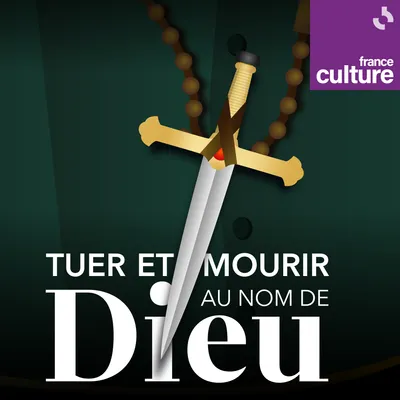
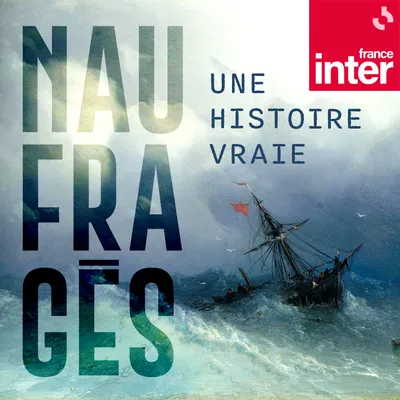
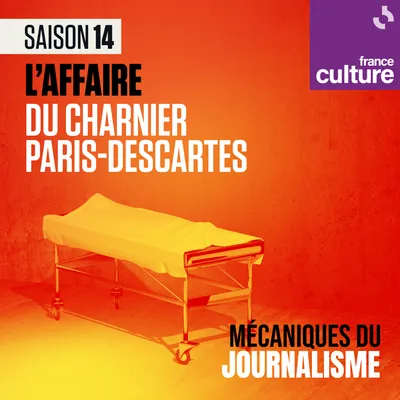
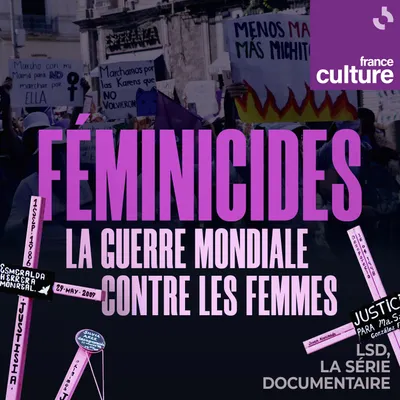
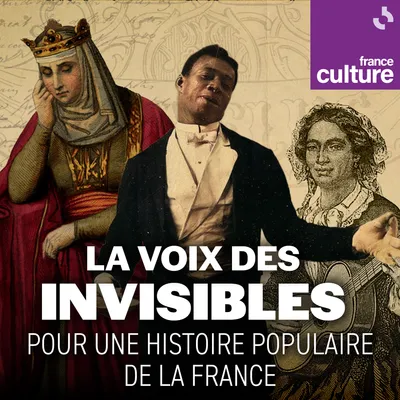

Tuer et mourir au nom de Dieu : Par Anaïs Kien. Pour LSD, Anaïs Kien interroge un évènement marquant de notre histoire, la Saint-Barthélemy. Ce bain de sang national commence à la fin de l’été 1572, il incarne le paroxysme de la guerre civile, l’ultra violence religieuse et le crime d’État par excellence.
Naufragés : une histoire vraie : Par Daniel Fiévet. Coupés du reste du monde sur une île déserte ou sur un radeau à la dérive, confrontés à la faim, au désespoir et à la solitude, ils ont trouvé la force de réaliser l’impossible : survivre.
L'affaire du charnier Paris-Descartes : Par Elise Karlin. En novembre 2019, l'hebdomadaire "L’Express" révèle l’existence d’un charnier au Centre du don des corps de l’université Paris-Descartes. Cette enquête journalistique marque le début d’une investigation judiciaire qui va mettre au jour d’autres aspects d'un véritable scandale politico-sanitaire.
Féminicides, la guerre mondiale contre les femmes : Par Pauline Chanu. Pour LSD, Pauline Chanu retrace le continuum féminicidaire dans le monde entier. Des féminicides conjugaux aux tueries masculinistes, des crimes “d’honneur” aux tueurs en série… Comment se maintient ce système qui autorise les hommes à tuer les femmes ?
La Voix des Invisibles : Dans cette série historique et narrative, l’historien Gérard Noiriel rappelle le rôle essentiel de 10 personnages oubliés ou méconnus, qui ont, à leur manière, été déterminants dans l'histoire de France – de Brunehaut la reine des Francs à Marthe, paysanne des Hautes-Alpes.
Paroles d'histoire : petit canard du lot, car ne provenant pas de l'usine Radio France, Paroles d'histoire est un podcast mené par un historien, accueillant ses camarades de galère pour parler de leurs sujets avec passion et beaucoup de talent (et même de l'humour ! Les nuits dans les mottes castrales sont tout de suite plus courtes!)
Mentions spéciales <3 car il en faut !

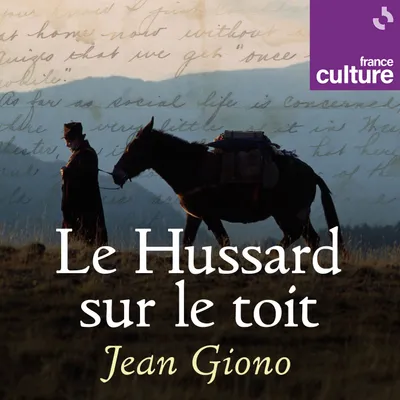
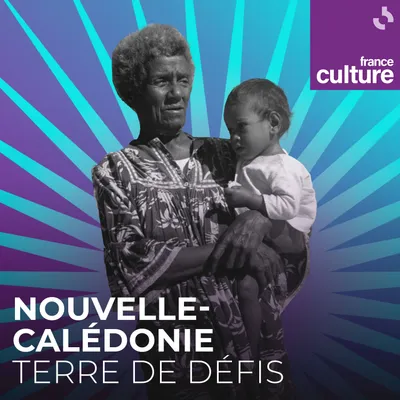
Comment finir une guerre : reportage Arte Radio absolument magistral sur la fin de l'organisation basque ETA, et profondément perturbant (attention à l'épisode retraçant une expérience en prison. J'en suis encore tout retourné). Résumé :
En 2011, après plus de 50 ans de conflit, l’organisation basque ETA annonce officiellement la fin de la lutte armée. Au Pays basque, des deux côtés de la frontière pyrénéenne, c’est une page qui se tourne, et l’espoir qu’une paix durable puisse enfin s’installer. Mais la route est encore longue. D’abord, il faut rassembler les armes. Des tonnes d’armes, disséminées dans les campagnes françaises. Puis les rendre au camp d’en face, afin qu’elles soient détruites. Enfin, il faut asseoir les deux camps – ETA d’un côté, les États espagnols et français de l’autre – autour d’une même table. S’écouter et se confronter. S’accorder, juger et réparer. Envisager, pourquoi pas, un avenir commun.
"Le Hussard sur le toit" de Jean Giono : adaptation radiophonique superbement menée ! Première adaptation du genre que j'écoute, et je suis sous le charme !
Nouvelle-Calédonie, terre de défis : du temps long (+10h d'enregistrements datant de quelques années maintenant) pour connaître les problématiques qui entourent la présence française en Kanaky, et les derniers relans de colonialisme français qui y sont en jeu. Des échanges rares dans la radio actuelle, des problématiques qui se posent encore malgré les décennies qui nous séparent des enregistrements...Plus que nécessaire en ce moment.
#saintsaens reads 2024 edition#podcast#radio#radio france#histoire#littérature#actualités#upthebaguette
4 notes
·
View notes
Text
The growing TBR Pile : 2024 edition

I'm not a fast reader. Case in point : Storygraph has me pinned as someone reading a book in... 2 months. I say this is slander. I think. I'm not sure. There might be some truth somewhere. But I consume a lot of content either via YouTube or Tumblr about books.
The consequences are dire : my TBR pile grows and grows! So here are some of my 2024 discoveries that I want to read (at some point, I don't know when exactly, it's difficult to say - but it will happen?).
First stop : Bosnian-Croatian-Serbian literature.
At the beginning of the year, I happened on a very short article (in an otherwise very dense newspaper) listing some of the latest translations by a single translator of BCS language. She mentioned the similarities and differences between all those languages, leading me to read more and more about her work and those languages. It made me quite curious about translated literature from that region and ended up compiling a few of them.
Source : interview in French of Chloe Billon, the translator in question, in Pages Sauvages.
Na Drini ćuprija - The Bridge over the Drina -, Ivo Andrić (1945)

The town of Visegrad was long caught between the warring Ottoman and Austro-Hungarian Empires, but its sixteenth-century bridge survived unscathed--until 1914 when tensions in the Balkans triggered the first World War. Spanning generations, nationalities, and creeds, The Bridge on the Drina brilliantly illuminates a succession of lives that swirl around the majestic stone arches. Among them is that of the bridge's builder, a Serb kidnapped as a boy by the Ottomans; years later, as the empire's Grand Vezir, he decides to construct a bridge at the spot where he was parted from his mother. A workman named Radisav tries to hinder the construction, with horrific consequences. Later, the beautiful young Fata climbs the bridge's parapet to escape an arranged marriage, and, later still, an inveterate gambler named Milan risks everything on it in one final game with the devil.
Adios, Comboy, Olja Savičević Ivančević (2011)
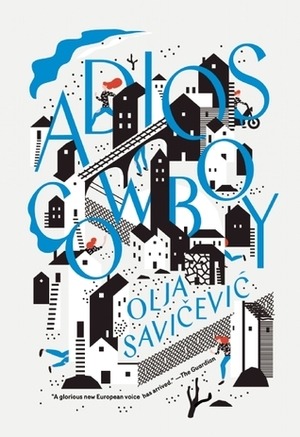
Dada’s life is at a standstill in Zagreb—she’s sleeping with a married man, working a dead-end job, and even the parties have started to feel exhausting. So when her sister calls her back home to help with their aging mother, she doesn’t hesitate to leave the city behind. But she arrives to find her mother hoarding pills, her sister chain-smoking, her long-dead father’s shoes still lined up on the steps, and the cowboy posters of her younger brother Daniel (who threw himself under a train four years ago) still on the walls.Hoping to free her family from the grip of the past, Dada vows to unravel the mystery of Daniel’s final days.
Second Stop : Polish literature
I learned a lot this past year about Poland (for personal reasons). I started reading about the history of the country, the language, its culture etc. I was at first quite ashamed to be so oblivious to another country from which quite a few of my friends's family come from, and with which French history is so closely linked. Obviously, I started piling up some polish writers in my TBR as a result.
Bezrobotny Lucyfer - Lucifer Unemployed -, Aleksander Wat (1927)
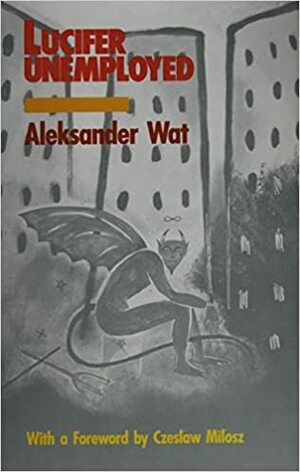
In these nine stories the Polish writer Aleksander Wat consistently turns history on its ear in comic reversals reverberating with futurist rhythms and the gently mocking humor of despair. Wat inverts the conventions of religion, politics, and culture to fantastic effect, illuminating the anarchic conditions of existence in interwar Europe. The title story finds a superbly ironic Lucifer wandering the Europe of the late 1920s in search of a mission: what impact can a devil have in a godless time? What is his sorcery in a society far more diablical than the devil himself? Too idealistic for a world full of modern cruelties, the unemployable Lucifer finally finds the only means of guaranteed immortality. In "The Eternally Wandering Jew," steady Jewish conversion to Christianity results in Nathan the Talmudist reigning as Pope Urban IX. The hilarious satire on power, "Kings in Exile," unfolds with the dethroned monarchs of Europe meeting to found their own republic in an uninhabited island in the Indian Ocean.
Third and Final Stop : under the Influence
I used to watch TikTok at some point, and most of the content left me frustrated, with a hint of dissatisfaction. But sometimes, sometimes, I happened on a great content creator, full of enthusiasm, or a very very avid reader sharing their love for one book. This, unfortunately, doesn't leave me unbothered. And I do admit, witnessing the passion of someone else about a book, made me want to dive into the novels myself !
Memórias Póstumas de Brás Cubas - The Posthumous Memoirs of Brás Cubas -, Machado de Assis (1881)
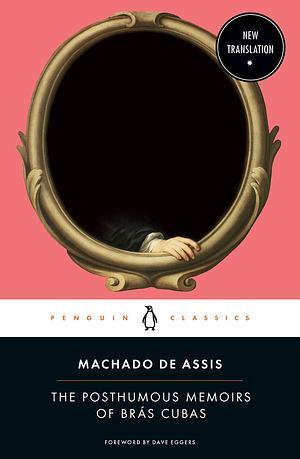
Machado de Assis is not only Brazil's most celebrated writer but also a writer of world stature. In his masterpiece, the 1881 novel The Posthumous Memoirs of Brás Cubas (also translated as Epitaph of a Small Winner), the ghost of a decadent and disagreeable aristocrat decides to write his memoir. He dedicates it to the worms gnawing at his corpse and tells of his failed romances and half-hearted political ambitions, serves up hare-brained philosophies and complains with gusto from the depths of his grave. Wildly imaginative, wickedly witty and ahead of its time, the novel has been compared to works by Cervantes, Sterne, Joyce, Nabokov, Borges and Calvino, and has influenced generations of writers around the world.
The Safekeep, Yael van der Wouden (2024)
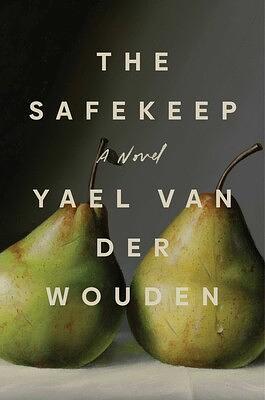
It is 1961 and the rural Dutch province of Overijssel is quiet. Bomb craters have been filled, buildings reconstructed, and the war is truly over. Living alone in her late mother’s country home, Isabel knows her life is as it should be—led by routine and discipline. But all is upended when her brother Louis brings his graceless new girlfriend Eva, leaving her at Isabel’s doorstep as a guest, to stay for the season. Eva is Isabel’s antithesis: she sleeps late, walks loudly through the house, and touches things she shouldn’t. In response, Isabel develops a fury-fueled obsession, and when things start disappearing around the house—a spoon, a knife, a bowl—Isabel’s suspicions begin to spiral. In the sweltering peak of summer, Isabel’s paranoia gives way to infatuation—leading to a discovery that unravels all Isabel has ever known. The war might not be well and truly over after all, and neither Eva—nor the house in which they live—are what they seem.
#saintsaens reads 2024 edition#tbr pile#tbr list#books#bosnian croatian serbian literature#(is there a tag that relates to them ???)#polish literature#brasilian literature#classic literature
6 notes
·
View notes
Text
Oh dear! Oh dear! I shall be too late!
This year, maybe more than any other before, I've been plagued with a reading curse : a curse of DNFing books. Not out of boredom or dislike, maybe the exact opposite : a too passionate approach.

This year has been a year of many first in various aspects of my life. One of which less enjoyable than others : my health has taken a toll (which, fingers crossed, will not bear any physical consequences) but which for sure left me with quite a shaken spirit.
One of the effects of said shaken spirit was a feeling of general instability. While, at the same time, I was quite sure to have left behind most of the instability I had lived through until this year... Well, life never goes as planned it seems. Unfortunately, both my physical state and this now infamous feeling of looming instability left me reeling, and I found myself properly unable to finish books which I enjoyed a lot. It sounds strange, believe me it is even stranger to go through it !
The victims of my DNFing :

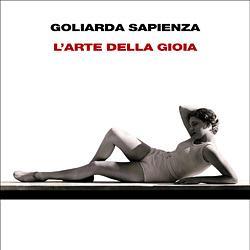
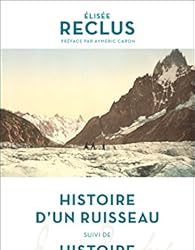
[Covers of : The Books of Jacob - Olga Tokarczuk (english edition) ; L'Arte della Gioia, Goliarda Sapienza (italian edition) ; Histoire d'un ruisseau, Histoire d'une montagne, Elisée Reclus (french edition)]
These books were fascinating for me, for different reasons :
The Books of Jacob explored a narrative style, as well as a subject and a place throughout centuries I know next to nothing about.
L'Arte della Gioia offered a uniquely endearing story, coupled with a writing style which left me breathless, while also challenging my understanding of italian in a literary setting.
Histoire d'un ruisseau, Histoire d'une montagne might be the odd one out : I would take this book, which is both a study in political ideas and geology, with me while going on hikes. I wanted to observe and be in a similar environment as the one studied there. Obviously, my health being what it is, I didn't hike nor walk as much as I had hoped for.
These books, varied as they are, were so fascinating that I gave it my whole energy when I read them. I would settle, start a sentence, think it over because of how beautiful or thoughtful it was, start dissecting it (as one can do when one is a former literature student...)... and then two chapters in, the energy is out of the window, because life is not un long fleuve tranquille, and I'd find myself at a loss on what to do when my mind cannot focus anymore as much as I would like it to. What a conundrum.
I'm not loosing hope I'll ever be able to read those books entirely at some point (maybe next year even!), but what I can take out of this year is that I might need to stop pushing myself too much.
It's easy, in a way, to feel pressured to read books quickly in our current society. Even more so when there are so many great books that seem to be waiting at your fingertips. And wen book content is being published by single readers at an unfathomable speed, content creators who talk about books are showing off monthly TBRs so high it might swallow them whole if they fall on their heads... How can you remain distant and unaffected ? The answer is quite simple : you can't. So you want to read. You want to read a lot. More. Always more.
And with such an environment, it's just as quickly guilt-tripping to know you enjoy books, to know you are able to enjoy books, but to physically or mentally be unable to read or to stick to a story. I have been through this so many times this year, it's mentally exhausting.
Now, while I had tried this year to work on finding a healthier balance in my work life, I now also hope to find a healthier balance in my hobbies, of which includes reading.
I love reading, but I don't want to feel pressured into reading. I also don't want to spend my free time only reading as a consequence (which happened sometimes, because I felt urged to finish books...for no reasons at all). I have a lot of hobbies besides reading that I which I could dedicate time to : writing first and foremost, but also (as you might have noticed) knitting and embroidery, learning languages... there are so many creatives outlets I wish I could focus on !
But most importantly now, I want to be able to enjoy the books I'm reading without depleting what little energy I have. I want to have a healthier relationship with my hobbies. And while before I was afraid of loosing time by not being in a good enough physical state, I want to take care of myself so that, when I have the energy, I can fully enjoy the hobbies I set for myself. Reading is about learning, discovering, emphasizing. It takes even a lot more out of you, if you try to get out of your comfort reads : changing genre, styles, periods or languages... there is no shame in that. And there is certainly no shame in needing time.
In the end, I DNFed these lovely books out of self-preservation, to go on with a lighter mood and find a better balance in my reading life. Hopefully, in a few months, I can come back to them in a calmer mind and a calmer environment, where I'll be able to dive without fear into their stories to discover them fully, enjoy them fully... and share them with you as much I as I like !
#saintsaens reads 2024 edition#dnf book#shame on me !#(or not)#thoughts on reading#and the pressure of reading more and more and quicker etc#and how life doesn't go as you wish sometimes#but it's fine <3
3 notes
·
View notes
Text
A detour in territories I never trod peacefully
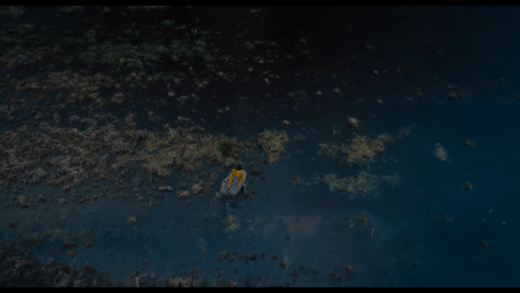
I have very much a love-hate relationship with the French language, and French literature. Not surprisingly, it might have something to do with school and how I was taught French, as well as how I was taught to study literature then.
It took me almost a decade to start feeling comfortable reading French books again, and discovering writers who could be considered outsiders of the "culture classique" helped quite in the matter : the queer novels of Jeanne Galzy, Rachilde and Genet where, in that aspect, true revelations. So what about really diving in that infamous French Literature?
Well, I am still not 100% comfortable confronting myself to more traditional French "classics" (those Names that All The Right People know etc...). It is a shame (or at least it feels so) because sometimes, I'll happen on some books and read summaries which makes them sound right up my alley! But then I'll see the name of the writer and straight up freeze. A great reaction there, truly.
So, taking myself by the hand, I've decided to give it a try and jump into two classics of French literature, trying to decide for myself whether or not they are as good as they're said to be.
[Would I be missing something if I never persevered in reading French "classics" ? No. Honestly, I don't think one can miss something by not reading a book. If people speak about it enough around you, or you read enough about it, it's just as if you had read it really (see : Comment parler des livres que l'on n'a pas lus ? by Pierre Bayard, which is exactly about the cultural aspect of not reading books yet knowing about them !). So nothing will be missed. Unless you're really interested by it ! It's really all about the experience, and the enjoyment of the text. Why do I persist then ? Is this lead by an ingrained training that French classics have to be better than other non classic books ? - Arrêtez-vous là Madame Borne. You're not my therapist. Yet. ]
Those That Might Just Break The Curse

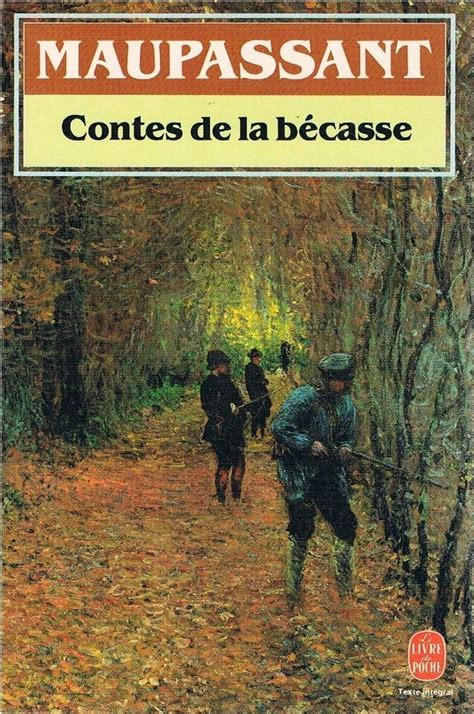
Les Diaboliques, Jules Barbey d'Aurevilly
First published in 1874, Les Diaboliques caused an uproar and all the copies of the book were seized on the orders of the Ministry of Justice as the book was a danger to public morality. In Les Diaboliques there are six tales of female temptresses--she-devils--in which horror and the wild Normandy countryside combine to send a shiver down the spine of the reader.
Les contes de la bécasse, Guy de Maupassant
Chaque automne, un vieux chasseur régalait ses amis de bécasses. Les têtes de ces délicieux oiseaux étaient donnés à un seul convive désigné par le sort. Et ce dernier, pour dédommager les autres, devait raconter une histoire.
General themes
As you might have noticed, they are both short stories / novella collections by two 19th century writers. I didn't go much out of my comfort zone in terms of context (I love the 19th century), and the shortness of the texts is also less stressful to get into (although Les Diaboliques is actually 500p long...).
The part about "female temptresses" in Les Diaboliques is really what caught my eye about that one. I went into it looking for awful / corrupted Ladies who will bring Hell down on the men that bother them (or just live in their vicinity - I am really not picky). As for Les Contes de la Becasse, it's the summary of my edition mentioning how funny and yet dark they are that made me pick them up.
(The prices of both those books helped a lot as well : they cost less than 3 / 5 euros a piece brand new - which is always a good incentive as far as I'm concerned)
The Reading Experience
I started straight away with Maupassant, reading in one setting 4 stories. They are well-written for sure, I didn't see the time go by as I read them. The first one is very peculiar to read right now (as it is concerned with a sexual assault and how it is handled afterwards by the man who committed it... And his friends), and I can't help but wish to write in turn a short story where they all get what they deserve. So far, I've kept on reading the other short stories, and I can say that while they are definitely of their time (misogyny abound ! orientalism !!), Maupassant truly has a way with writing chilling stories. I'll give him that.
Once closed, I jumped straight into Les Diaboliques (leaving my other books on hold for the time being). I was on a roll, and I really wanted to read about malicious ladies it seems. It was from the beginning harder to get into Barbey d'Aurevilly's style. Much more pompous, involved.... A lesser, more boring version of Victor Hugo in a way. But nonetheless, I was intrigued by the name of the first story I read "La vengeance d'une femme", and Damn. My God. It caught me unaware because the story of the woman in question crossed a few of the tropes I love and almost never read about (none less than " Woman eating/wanting to eat their lover's heart" ?? And that's an adjacent point in the story to the main vengeance????). I am aghast. I am shaking. It was fabulous. Best vengeance ever. So, still pompous writing, but great ideas and female characters. Good job Barbey d'Aurevilly!
Conclusion
Maupassant - Les contes de la becasse
I finished Maupassant in less than a day, so fascinated I was by the various slices of life his short stories offer. Most of them are concerned with a haunting : whether supernatural or man-made, the suffocating influence permeates almost all of the stories in the book. The mistreatment of women by men is also a recurring theme, so be warned for the accounts of sexual assaults taking place in maybe a quarter of the short stories. But I always find Maupassant to have a way to guilt-trip the men involved, who either assaulted a woman or witnessed the mistreatment. There's also a lot of cynicism in the stories, and I didn't think so, but also many references to the Franco-Prussian conflict of the 1870s. All in all, a good discovery!
Barbey d'Aurevilly - Les Diaboliques
Much denser than Maupassant's collection, and again much more affected (I did not read the stories as quickly, that's for sure), but still an honestly fascinating surprise. That man is unhinged. I can see why this would have been censored. He certainly was a man with ideas. I really thought "Dead Dove: do not eat" many times, which is saying something (good, I believe). It's a shame truly that otherwise is style is not really palatable with how involved it is, but the potential surprise I could get at reading his stories is what kept me going nonetheless. The man had ideas. I am honestly fascinated. I'll be recommending it around (in a weird, cautionary way but still).
I'd say : it's a win!
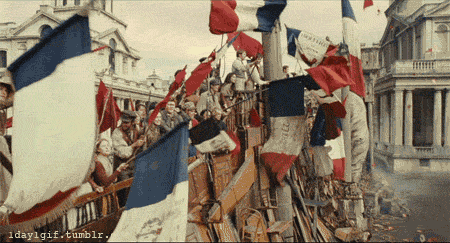
#saintsaens reads 2024 edition#littérature#littérature française#french literature#breaking the godforsaken curse!!!
2 notes
·
View notes
Text
Wait, I read that? in 2024?



[covers : Spectred Isle, KJ Charles // The House in the Cerulean Sea, TJ Klune // My year of rest and relaxation, Ottessa Moshfegh]
Fantasy, romance...and a contemporary literary novel ? What on Earth is happening around here ?
Guess I'm pushing the boundaries of my usual "dark"/"sad"/"tense" type of novels, by going for "lighthearted" and "adventurous", but honestly the most baffling aspect of the first two novels is that they are classified as "romances". Which is not a genre I usually favor (or incidentally if that). But I feel I could get used to it...if only I could find other romances that suited my tastes...
Also a contemporary literary novel? Well. An actual contemporary literary novel. There's no stopping me now it seems. (fair point : it is classified as "dark" and "tense" so I didn't get too much out of my comfort zone there. But still).
#saintsaens reads 2024 edition#romance books#fantasy books#contemporary literature#I am baffled by my own reads#the most unexpected books I picked up this year
2 notes
·
View notes
Text
Beaux-livres of 2024
"Beaux livres" is an expression I couldn't find any equivalency for in English. You'll come across it often in French bookshops, with especially attractive books, usually larger than others, or heavier to handle, printed on fine paper with great care applied to their design, typography, visuals etc. They're usually made for their visuals rather than their textual content. They are also known for being quite expensive compared to other books.
I don't usually buy any beaux-livres, maybe because until very recently I didn't have any nice location to put them in (nor any library shelves for that matter...). This year, however, through my travels, I came across a few which have been mesmerizing me ever since I bought them, and I thought it would be nice to share two of them with you (and maybe mesmerize you too!)

The World of Ornament, David Batterham (2006)

Discover a world of decorative ideas with this compendium of history's most elegant patterns and ornamental designs.The World of Ornament brings together the two greatest encyclopedic collections of ornament of the 19th century: Auguste Racinet's L'Ornement polychrome Volumes I and II (1875-1888) and Auguste Dupont-Auberville's L'Ornement des tissus (1877) to provide one lavish source book spanning jewelry, tile, stained glass, illuminated manuscript, textile, and ceramic ornament. Encompassing classical, Egyptian, Greek, Roman, Etruscan, Asian and Middle Eastern, as well as European designs from medieval times through the 19th century, this compilation of cultures and aesthetics offers a primary reference for artists, historians, designers, and patternmakers, and anyone engaged in decorative design and impact.



I happened on this book by pure chance : it's quite small (although heavy) and is filled with fascinating decorative styles, listing their historical and artistic specificity, as well as providing many examples for each style mentioned. The explanations are as interesting as the visuals, and I can spend easily an hour just browsing through it.
How Zoologists Organize Things: The Art of Classification, David Bainbridge (2020)

Humankind's fascination with the animal kingdom began as a matter of survival - differentiating the edible from the toxic, the ferocious from the tractable. Since then, our compulsion to catalogue wildlife has played a key role in growing our understanding of the planet and ourselves, inspiring religious beliefs and evolving scientific theories. This human quest to classify living beings has left us with a rich artistic legacy, from the folklore and religiosity of the ancient and Medieval world through the naturalistic cataloging of the Enlightenment to the modern, computer-generated classificatory labyrinth. This book tells the fascinating, visual story of this process. The wonderful zoological charts reflect prevailing artistic trends and scientific discoveries, as well as telling us as much about ourselves as they do about the creatures depicted.




I had been looking for quite some time for a history of classification regarding animals. I finally broke down and bought this book in early december, and I am absolutely in love with the visuals involved. They are fascinating. I'm less taken in by the text, explaining the logics behind such classifications and artworks. It's very much european centered, and has many shortcuts which made me jump when explaining historical periods. Nonetheless, it's main goal (introducing the visual classification of animals and its evolution throughout time) is fulfilled. And it's really inspiring.
3 notes
·
View notes
Text
I very recently heard about a booklist : the list of the 60 most popular books on Goodreads of the past 5 years. In the same vein, I have heard in passing about the New York Time 100 Best Books of the 21st century (bold).

I find the premises of both these lists quite debatable (in terms of origins, limits and reach), but they raise for me an interesting point.
I have been questioning, for quite some time now, my bias towards contemporary books. It is quite rare for me to pick up books published in the past years, and my mind has this instinctive take that, obviously, books published "in the past" have to be better than whatever gets published nowadays in my own lifetime. This ingrained reaction has been bothering me more and more, without me being actually quite successful in breaking the vicious circle I've grown into.
I am quite certain that such thoughts were fostered by school and literary classes. I have worked on expanding my reading habits with more or less success (not reading only fiction, reading outside of British/American and French Fiction, reading more female writers...), but never really got over that instinctive feeling regarding contemporary fiction.
As a result of such thoughts, and also thanks to an afternoon of rather passable weather, I thought I would go through the NYT list and see what came out of it. I decided to forego entirely the Goodreads one for multiple reasons, but mainly because the average user of Goodreads tends to favor YA/Romance novels. Which are both genres which I do not read (apart from the occasional exception, and even then... it's never an entire success for me unfortunately). So, instead of twisting the game from the very beginning, I believed I'd have more luck with the NYT list (also because maybe more of those books would have been translated/made available were I read, whereas I don't think I'd have a similar access to books favored by USAmerican readers on Goodreads).
So here goes something :
On the 100 books mentioned, written / published in English in the past 24 years ...
Books Read : 4 !




I am honestly surprised that I managed to read 4 books mentioned in the list. As it so happens, I read all 4 of them in English (although that wasn't a limiting factor in deciding whether or not I had read any of the books mentioned). They are all quite recent discoveries for me, my latest read of the 4 being Claire Keegan's, which I read last January (and didn't like much, truth be told). Two of them being Hilary Mantel's, I have no excuse (I adore historical fiction, and she is a master at it). While Kazuo Ishiguro.. well. The less said about it, the better.
Books To Read : 20 !

I am also surprised that, in the amount of books listed, I managed to find 20 I could be interested to read ! They are fiction (mostly translated in that case) and memoirs, mainly focused on historical or political situations. I hadn't heard about most of those before going through the list, so that's the positive aspect of taking the time to do this. But all in all, to be frank, I feel I am completely out of the loop when it comes to contemporary publications, even more so in the USA.
Books I had Heard Of : 3
Apart from those I've read and want to read, I had heard about 3 other books... What a success. Toni Morrison, Annie Erneaux, Philip Roth. I know about those writers, but don't feel keen on discovering them yet. I honestly believe I knew about Morrison's and Roth's because they had published books before the 2000, and I read/ might have tried to read one of theirs at some point. Annie Erneaux is French and has been praised far and wide for the past years, so I couldn't not know about her. But her writings, again, don't appeal to me quite yet.
Books I had Never Heard of and Don't Want to Read : all the others ? (73???)
Without couting precisely, most of them were related to USAmerican society (essays or settings). I'll admit I've read so much of those in the past, because of school, that I feel a deep need to change views and books's origins. I don't need to know more about the USA when I know next to nothing about other countries located in the continent I live in, and that includes works of fictions (see : my disbelief at realising last summer that I knew nothing about polish literature. A dismay. A tragedy.). Other than that, the fictions I hadn't heard about or cared about where mostly self-reflection about the literary / art world, short-stories collection (I am not a fan), or too high-brow in their description for me to feel any need to dig into it. Obviously, a first impression might not stand against the reading of a text, and I expect I'll be picking up books that fit these descriptions in the years to come. But those from the NYT list ? I'll give it a pass.
#saintsaens reads 2024 edition#goodreads#new york times#nytimes#book list#books#contemporary fiction
2 notes
·
View notes
Text
This isn't book related, but it's an achievement I'm really proud of, everything considered.
It's been exactly a month since I finished knitting this HUGE sweater for my father. I am really proud of it. And you know what's best? He likes it a lot too. Which I didn't expect (yes, it was unexpected for me. And for my mom.).
Anyway : having a hobby where you create, whichever craft you go for, is good for you.
Take care of yourself <3
(I'm trying on my end)


Ladies and gentlemen, gentlefolks, let me introduce you to my latest darling 🥰
(Pattern : Cold Fish Sweater by Yuhaknitting / Nazilia Zemdikhanova)
#saintsaens reads 2024 edition#not book related#technically#(i did listen to many many audiobooks knitting it)#(it's really huge)#knitting project#knitting
312 notes
·
View notes
Text
The Golden Titles

An unordered list of all the novels I rated 5/5 stars on Storygraph this year!



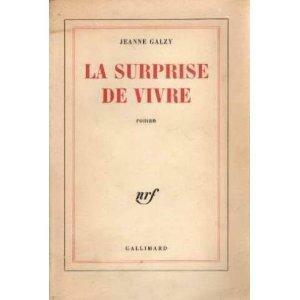
Minor Detail, Adania Shibli
Minor Detail begins during the summer of 1949, one year after the war that the Palestinians mourn as the Nakba – the catastrophe that led to the displacement and expulsion of more than 700,000 people – and the Israelis celebrate as the War of Independence. Israeli soldiers capture and rape a young Palestinian woman, and kill and bury her in the sand. Many years later, a woman in Ramallah becomes fascinated to the point of obsession with this ‘minor detail’ of history. A haunting meditation on war, violence and memory, Minor Detail cuts to the heart of the Palestinian experience of dispossession, life under occupation, and the persistent difficulty of piecing together a narrative in the face of ongoing erasure and disempowerment.
Tinker Tailor Soldier Spy, John Le Carré
The man he knew as Control is dead, and the young Turks who forced him out now run the Circus. But George Smiley isn't quite ready for retirement--especially when a pretty, would-be defector surfaces with a shocking accusation: a Soviet mole has penetrated the highest level of British Intelligence. Relying only on his wits and a small, loyal cadre, Smiley recognizes the hand of Karla--his Moscow Centre nemesis--and sets a trap to catch the traitor.
La Surprise de Vivre, Jeanne Galzy
Dans leur résidence du Languedoc, à la fin du siècle dernier, les Deshandrès s'apprêtent à recevoir Eva, qui vient d'épouser leur fils David, héritier d'une longue dynastie de banquiers. Qui pourrait deviner, à voir cette famille nombreuse, rassemblée chaque soir pour la lecture de la Bible, que presque tous portent leurs abîmes? C'est la surprise de vivre.
Into Thin Air, Jon Krakauer
Journalist Krakauer, standing on the summit of Mt. Everest, saw nothing that "suggested that a murderous storm was bearing down." He was wrong. The storm, which claimed five lives and left countless more in guilt-ridden disarray, would also provide the impetus for this epic account of the May 1996 disaster. Unabridged. 7 CDs.
1 note
·
View note
Text
A collection of inspiring Readers

I've found this past year a few content creators, mainly over on Youtube, who have been very inspiring in terms of books to read, relationship to reading and overall approach to the literary world. Here are three of them !
(ordered from latest to oldest discovery)
Gaia Lapasini
Language : Italian
After having consumed mainly english-speaking booktubers, her tone, her approach to books and reading feels like a breath of fresh air (and it's not just related to the fact that she records in italian I swear) ! She offers precise insights into the books she reads, and while I'm still quite new to her channel, I adore her Adventcalendar videos through which I discovered her. Especially when she opens a book gifted by her father, another book lover, and shares it with her audience, explaining the reasoning behind his choice !
[I also might be biased (I unfortunately am completely clueless as to my own level of Italian), but I feel like her speech / speed wouldn't be too challenging for someone learning italian who has already a solid foundational grasp of the language. Her "vlogs" are pretty interesting for getting used to every day conversational italian for example. But again, I might be biaised!]
youtube
ALÉA+
Language : French
Capital letters notwithstanding, I discovered ALÉA+ with her interviews of left-winning french streamers on Twitch. She appears so at ease, and casual in front of the camera, it instantly makes the audience comfortable. She didn't publish much on books, but I especially appreciated her very recent video on the Prix Goncourt, comparing the winner of 1924 and the winner of 2024. She takes the time to go through the books she is reading, explaining her own sensations and what she takes out of the writing, as well as contextualize them in their social / political scope; it's all very satisfying and I wish she would publish more videos like this one !
[As a French person myself, I definitely cannot judge how easy it would be for someone learning French to follow through her videos : she uses very informal speech sometimes, referencing cultural and political aspects of French culture often. But if you can watch it, try ! I swear it's great !!]
youtube
This Story Ain't Over
Language : English
Jananie shares her enthusiasm and love for books with such kindness, I cannot help but watch every single one of her videos. I don't read the same books as she does, but I do love to listen to her speak about them. And every so often, another novel is added thanks to her to my TBR (broadening my reading world is something I try every once in a while) ! I also enjoy how she publishes sometimes original ways to talk about books (tier-ranking books, going though some social medias tags related to books...).
youtube
#Youtube#saintsaens reads 2024 edition#booktube#booktubers#thisstoryaintover#aléa+#gaia lapasini#book recommendations#content creator
1 note
·
View note
Text



Best book read in October 2024
Into Thin Air: A Personal Account Of The Everest Disaster, John Krakauer (1997)
“With enough determination, any bloody idiot can get up this hill,” Hall observed. “The trick is to get back down alive.”
Pictures : photographs of John Krakauer's expedition.
2 notes
·
View notes
Text



Best book read in September 2024
Tous ceux qui tombent, Jeremie Foa (2021)
Pour qu'un massacre tel que la Saint-Barthélemy soit possible, il faut qu'une certaine intimité entre tueurs et tués soit mobilisable et déployée dans la mise à mort. Le savoir indigène, l'expertise locale, l'oeil du proche expliquent la facilité déconcertante avec laquelle se déroulent les exécutions. Les tueurs sont d'autant plus redoutables qu'ils ne sont pas étrangers au lieu des tueries ; d'autant plus retors que, pour les partager, ils savent bien les habitudes de leurs "adversaires". Ils sont familiers des lieux où les futures victimes travaillent, connaissent les rues qu'elles empruntent, les coins où elles dorment, ce qu'elles mangent, ceux qu'elles aiment. Et leurs visages, bien sûr.
Pictures : Un matin devant la porte du Louvre, Debat-Ponsan (1880) // // Registre des causes et expéditions faites au greffe de la Connétablie et maréchaussée de France (1572)// Le Massacre de la Saint-Barthélemy, Dubois (1584)
#saintsaens reads 2024 edition#jeremie foa#tous ceux qui tombent#saint barthelemy#massacre de la saint barthelemy#histoire de france#histoire protestante#histoire de la violence#archives#essai historique
0 notes
Text



Best book read in August 2024
L'inconnu du donjon, Evelyne Brisou-Pellen (1997)
Ce qu'il y a de terrible, dans les guerres, c'est qu'on ne sait jamais de quel bord il faut se trouver. Et si on ne prend parti pour personne, on reçoit les coups de tous les côtés.
Pictures : Mariage de Geoffroi comte de Rennes et duc de Bretagne, avec Havoise de Normandie, soeur de Richard II, duc de Normandie (1460) // Pour la Bretagne. - Brest. - Vue de Brest. - St-Malo. - Vue de St-Malo. - Belle-Ile (plan). - Port-Louis (vue). - Granville. - Conquerneau (1702) // Bataille d'Auray (29 septembre 1364), opposant Charles de Blois ou de Châtillon, duc de Bretagne , au comte de Montfort (épisode de la guerre de succession de Bretagne) (XVth century)
#saintsaens reads 2024 edition#l'inconnu du donjon#evelyne brisou-pellen#littérature française#littérature jeunesse#fiction historique#garin trousseboeuf#histoire de france#histoire de bretagne#always a good laugh
1 note
·
View note
Text




Best book read in July 2024
Ogniem i mieczem, Henryk Sienkiewicz (1884)
The year 1647 was that wonderful year in which manifold signs in the heavens and on the earth announced misfortunes of some kind and unusual events.
Pictures : Skladanie sztandarow, Józef Brandt (1905) // Walka o sztandar turecki, Józef Brandt (1905) // Kozak na koniu, Józef Brandt //Husarz, Józef Brandt (1890)
#saintsaens reads 2024 edition#ogniem i mieczem#with fire and sword#par le fer et par le feu#henryk sienkiewicz#polish literature#historical fiction#polish history#ukrainian history
16 notes
·
View notes
Text



Best book read in June 2024
The port of London Murders, Josephine Bell (1938)
In the early afternoon of a bleak first of November, the San Angelo, with a mixed cargo from the East, and after a voyage remarkable in its latter part for almost continuous storm and gale, steamed thankfully into the wide mouth of Thames river.
Pictures : The western entrance to Pentonville Tunnel, Regent's Canal, London, c1905 // Wartime goods and supplies are unloaded from barges and boats in the London docks, on the River Thames, Nov. 9, 1939. // The Harbour Master's office at 74 Narrow Street, Limehouse, London, c1905. (source : Daily Mail)
#saintsaens reads 2024 edition#josephine bell#the port of london murders#crime novel#english literature#loved the social and medical details of the book <3
1 note
·
View note